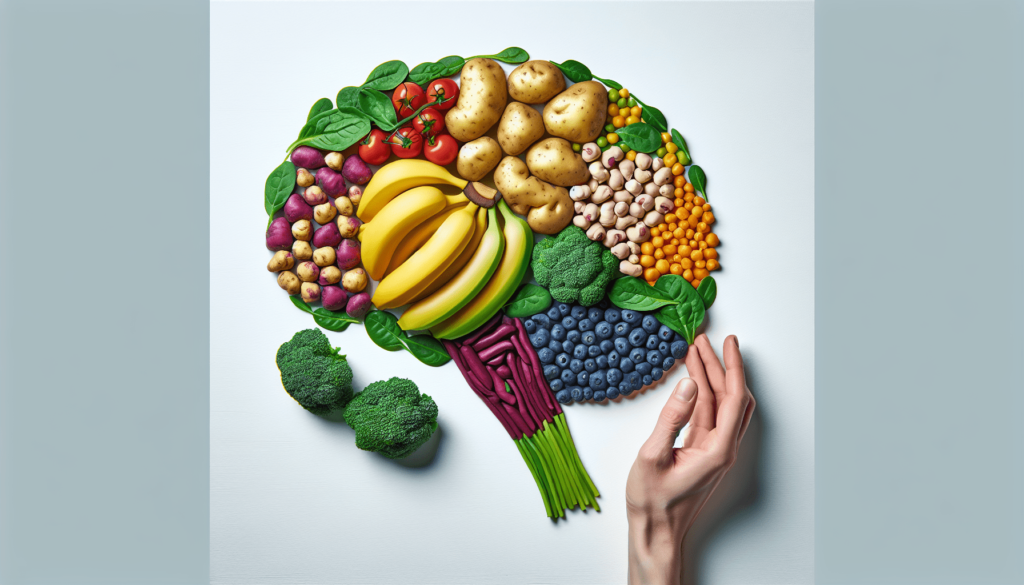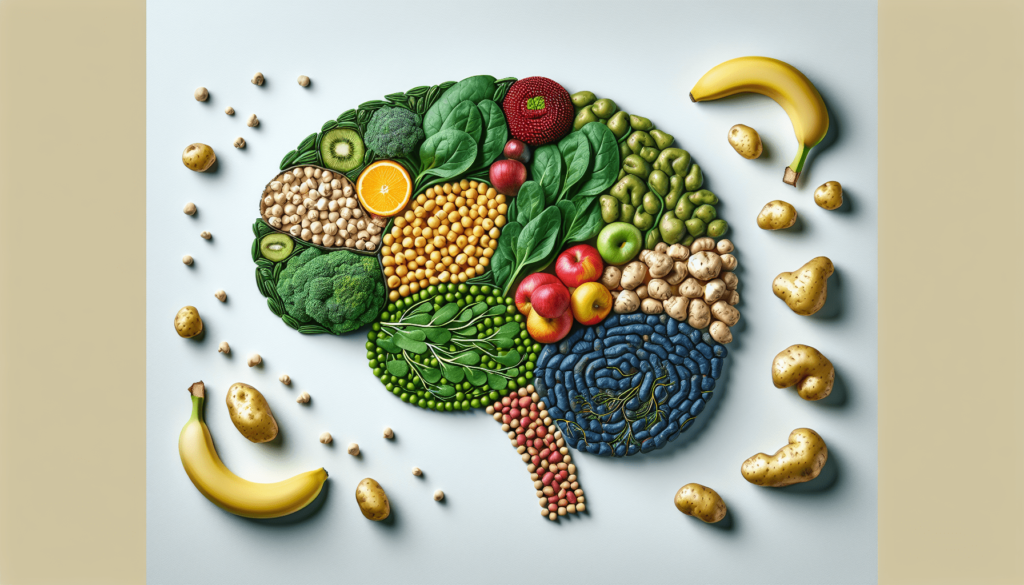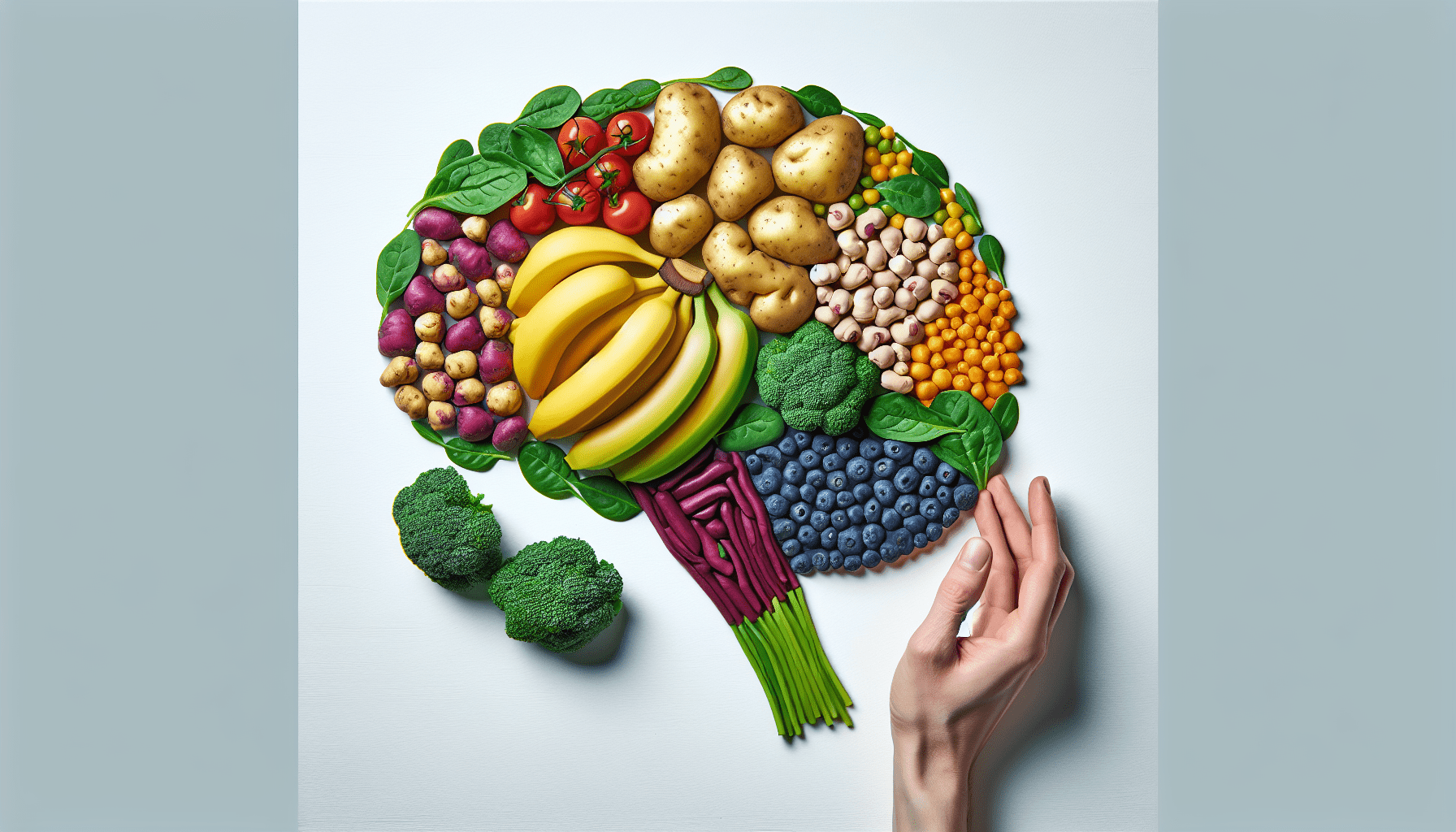The Role of Vitamin B6 in Brain Health
Have you ever caught yourself in a foggy daydream, wondering if maybe, just maybe, your brain lost its keys again? You know the feeling, when you’re standing in the kitchen but can’t remember whether you came in for coffee or just because your brain and feet decided to take a roundtrip without informing the rest of you. Well, hold onto your mental hats, because today we are embarking on a whimsical journey through the brain and its rather nutrient-obsessed cravings, especially when it comes to Vitamin B6.
What is Vitamin B6, and Why Should You Care?
Ah, Vitamin B6, the unsung hero in the vitamin alphabet. Vitamin B6, also known as pyridoxine (try saying that five times fast), doesn’t glamorize itself with valiant advertisements or claim the spotlight like its cousin Vitamin C. Yet, it plays a crucial role in keeping your noodles firing on all cylinders. It’s like a backstage crew keeping the show tip-top without demanding applause, or at least not until now.
Vitamin B6 is part of the B-vitamin band, which, despite sounding like a nostalgic rock group, is a collection of nutrients beloved for supporting our energy and brains. This vitamin helps in processing amino acids, forming neurotransmitters, and getting all the bio-chemical ducks in a row so that you, my friend, do not look like a duck staring at a complex math problem.
The Brain’s VIP Status and Its Influencers
Your brain is a diva, and rightfully so. It’s a high-maintenance organ, consuming around 20% of your energy despite only making up a modest 2% of your body weight. This diva needs its entourage of nutrients, including the illustrious Vitamin B6. Now, I’m not saying your brain should have its own reality show, but if it did, Vitamin B6 would undoubtedly be the unrecognized celebrity stylist behind every award-winning look.
Functionality at Its Finest:
| Function | Role of Vitamin B6 |
|---|---|
| Neurotransmitter Formation | Helps produce serotonin and norepinephrine, managing mood swings |
| Cognitive Development | Assists in brain development during pregnancy and infancy |
| Energy Metabolism | Breaks down proteins and carbohydrates for brain energy |
| Hormonal Influence | Regulates hormones that influence brain functions |

The Sciencey Bits: Neurotransmitter Dynamics
Think of neurotransmitters as the WhatsApp group chats of your brain cells, sending messages faster than your mom when she’s discovered emojis. Without a constant supply of Vitamin B6, your neurotransmitters might get stuck on the loading icon endlessly—an emoji nobody appreciates, especially when it concerns mood and cognitive functions.
Vitamin B6 is involved in synthesizing neurotransmitters like serotonin, dopamine, and GABA. For the layperson—a.k.a, those of us who’d rather watch sitcoms than read medical journals—these neurotransmitters are in charge of your happiness, motivation, and relaxation. So, if you find yourself questioning why you’re praising your dog for the third time over the same fetch catch, blame it on these brain chemicals!
Vitamin B6 and Memory: Never Forget to Remember Again
Remembering where you put your keys, why you walked into a room, or any of the characters’ names in that series you watched three times are just a few memory tricks facilitated by Vitamin B6. It contributes to the production of myelin, the substance that coats nerve cells, akin to insulating a house so you can stay warm and fuzzy. Without sufficient Vitamin B6, your memory might start playing hide and seek, and it’s always the one hiding in the attic.

The Brilliant B6 Squad: Foods to the Rescue
Are you getting curious about how to become your brain’s favorite chef? Lucky for you, there’s no complex Michelin-starred cooking required to boost Vitamin B6. Here’s a spread of gastronomic delights that’ll sprinkle some B6 pixie dust over your neurons:
| Food | Average Vitamin B6 Content (mg per 100g) |
|---|---|
| Chickpeas (canned) | 0.55 |
| Beef liver | 0.84 |
| Tuna | 1.04 |
| Salmon | 0.62 |
| Chicken | 0.51 |
| Potatoes | 0.30 |
| Bananas | 0.37 |
When Your Brain Goes on Strike: Symptoms of B6 Deficiency
If your brain throws its hands up in the air and mimics a toddler in a toyless toy store, it could be on a Vitamin B6 hiatus. Symptoms of deficiency often include irritability, confusion, depression, and nerve damage—which sounds frightfully close to how you’d describe that weekend spent with the in-laws.
The Winning Combo: B6 Alongside Its Nutrient Cousins
Like a well-attended party, synergy in your nutrient intake leads to mental fireworks. Vitamin B6 works harmoniously with other B-vitamins (imagine a family reunion with fewer awkward moments and more focused activities). Together, they promote energy, alleviate stress, and result in a brain environment that feels less like Monday morning and more like Friday afternoon.
Supplementation Sensation: To B6 or Not to B6?
Before you run off to stock your shelves with Vitamin B6 supplements, there’s something you ought to know. The best path is to consult with a healthcare professional rather than experimenting like a scientist who’s had one too many espressos. Too much of a good thing might result in nerve damage, which would put quite the damper on your newfound cerebral celebration.
Think of supplementation as a fancy restaurant. You don’t just make a reservation without checking the reviews first (unless you enjoy culinary roulette).
Wrapping Up the Party: B6’s Role in Mental Masterpieces
Vitamin B6 might not have superhero-themed cereals or action figures, but its impact on brain health is monumental. It facilitates neurotransmitter synthesis, reinforces your memory fortress, and collaborates with fellow vitamins in the grand theatre of your cranial cavity. Being B6-savvy means concocting a diet rich with the foods that pack this nutrient punch and not forgetting to laugh at yourself on those days when your brain behaves like a petulant child.
Start pampering your brain like the diva it is with Vitamin B6, and perhaps the next time you forget why you entered the room, you’ll find a clever way to blame it on old habits rather than a deficiency. And remember, adding a sprinkle of humor to your life can be just as nourishing!
